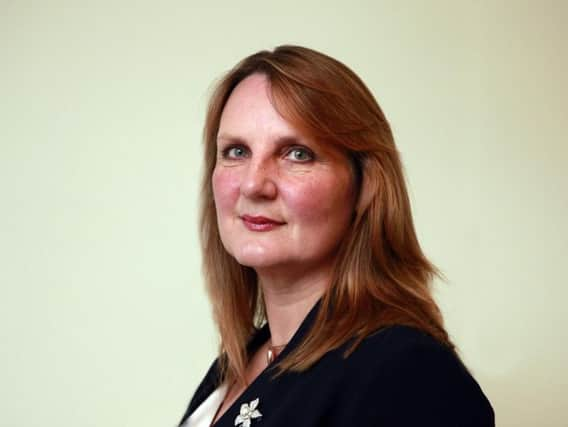Michelle Ballantyne takes swipe at rival on tax and claims free tuition fees have 'failed'


At her official campaign launch for the top job in the Scottish Conservatives, the MSP said free tuition fees had forced universities to place a cap on places, affecting the students the policy was design to aid in the first place.
Ms Ballantyne, who is the underdog in the race to replace Ruth Davidson, also took a swipe at her rival Jackson Carlaw, when she said her priority would be creating better tax regimes for businesses to boost Scotland's economy than giving individuals a tax cut.
Advertisement
Hide AdAdvertisement
Hide AdScots on incomes between £27,000 and £43,430 currently pay up to £150 more in tax than people in the rest of the UK, while those earning between that mark and £45,000 stump up an extra £500. He has also said the party should look at dropping its opposition to free tuition and free prescriptions.
Today Ms Ballantyne said: "Tuition fees do need looking at. They were brought in to broaden opportunity, among particularly the more deprived areas and young people who never got the opportunity to go to university and I feel that has failed.
"We're seeing increasingly that in order to deliver free tuition, a cap on places, and those who suffer most under that cap are those who have the least opportunity. And we have to remember it's not just tuition that bars people from being able to attend university, it's the cost of living. Many youngsters I've spoken to have been unable to take up their place in university because they can't afford to go away and sustain themselves to be able to study and live.
"And that's something we need to review. I've been looking very carefully at potential for alternatives one that is not about completely free tuition and one that is not about charging people, I believe there's a better way forward and I've been working on something I think could work in order to enable equal opportunity for all people."
Asked what her new policy would be, she refused to disclose it. "I'm not prepared to put it out there yet, I'm testing my theories to ensure they are robust, I believe that one of the problems we have in this country is that a lot of policies are made on the hoof - they're announced and then there's a catch up game to make them work. I don't want to make policies on the hoof and make promises that can't be delivered."
But she added: "Actually I believe the first step is for businesses to thrive in Scotland. Without effective employment across the country we won’t have taxes to collect from people who are employed. So the first thing is to address the tax on business and make sure they are able to provide good, stable employment.
"And then once we’ve done that and we have the tax take coming in I think we should look at levelling up taxes.
"We will find it increasingly difficult to persuade people that this is the right place to come and be a consultant in our health service or to be a senior teacher or to be a senior police officer. If we are going to attract the best engineers best researchers... yes we do need to be competitive but we have to balance it. And the first thing to do is to make sure we can attract people who will create wealth to support tax cuts.
Advertisement
Hide AdAdvertisement
Hide Ad"Remember when we talk about best talent, high earners, its not just about what them earning and coming here. It's about what they bring to people in our society. It’s about what they bring to the learning and development of those below them," she said.
"If we don’t have the top people our people below them in the system are not going to learn the best, the latest, the most modern, the most effective ways to do things.
"If we can deliver with lower taxation and beat them [England} and attract the best people I would love to do that," she said. "But we have be realistic and for me the priority is actually delivering effective services on the ground."